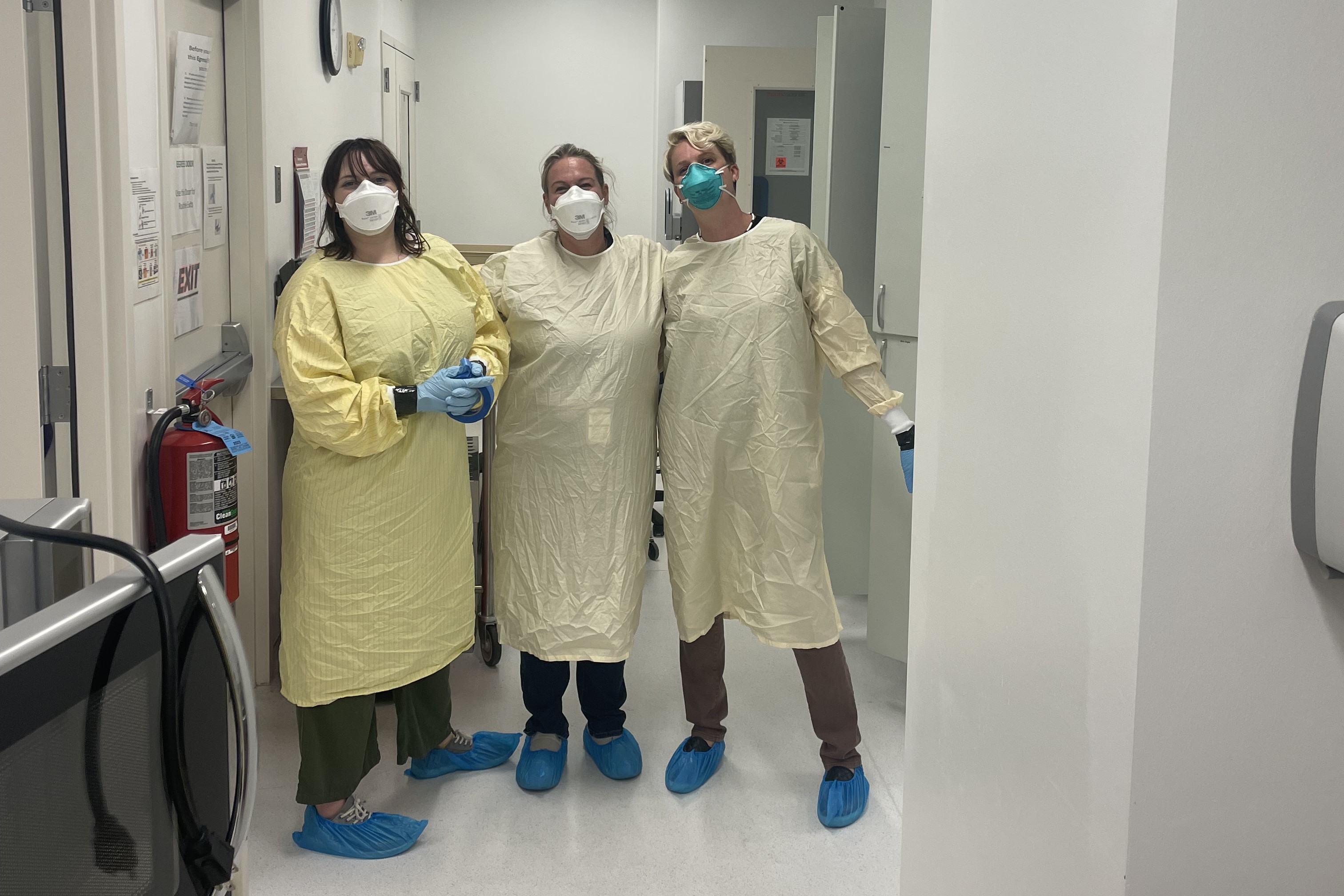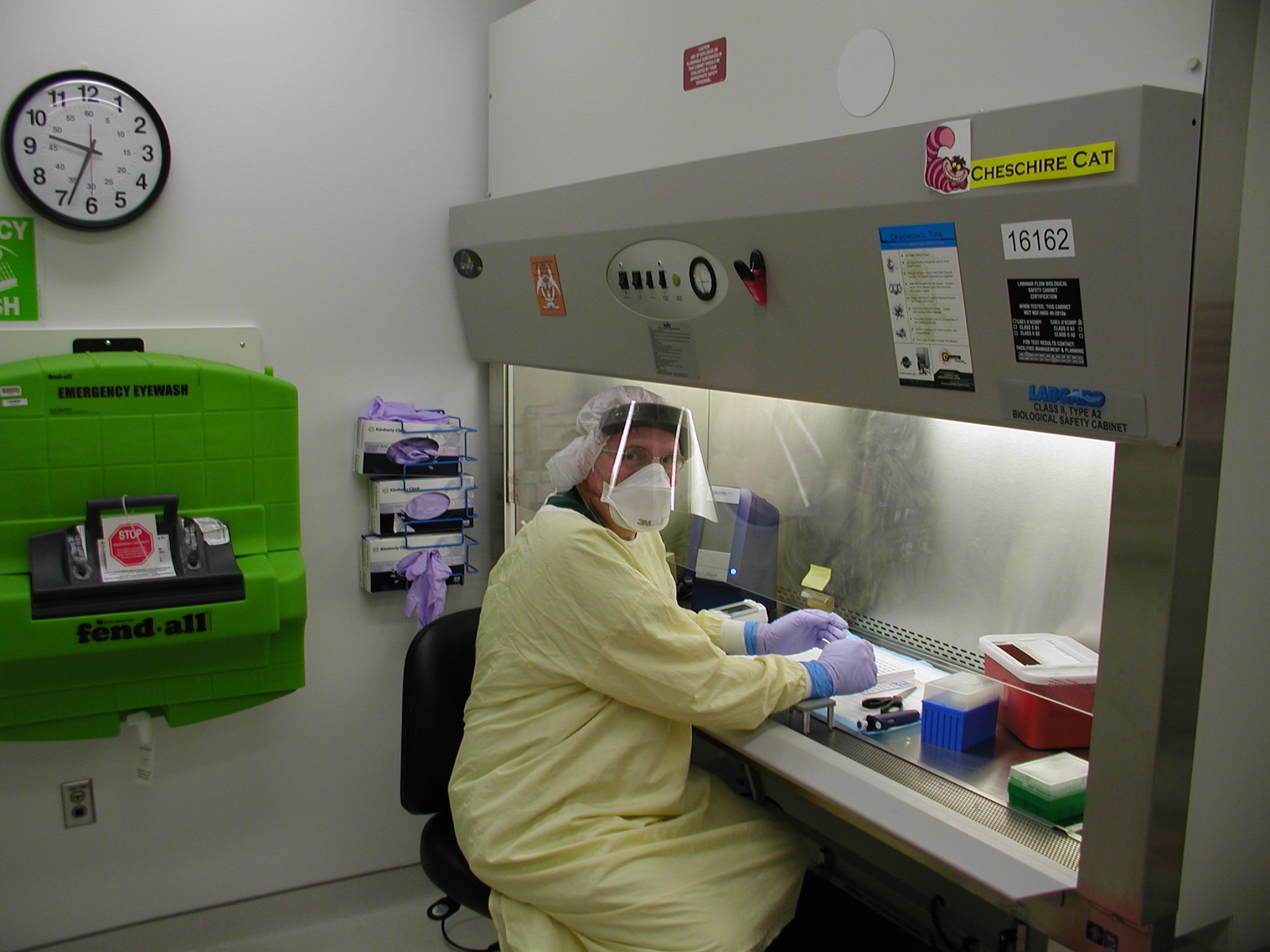October is Biosafety Month!
Come meet the UNMC Biosafety Team! Jenna, Jackie, and Mackenzie will be available in the DRC Atrium, Thursday October 24th between 10am-2pm! Resources, demos, goodies, and a raffle included. Learn more about the UNMC Biosafety Program!


What is Biosafety?
Biosafety is a set of principles and practices, either studied or applied, that are intended to address the safe handling and containment of infectious microorganisms and hazardous biological materials.
Safe use of biological and biohazardous materials involves:
- Appropriate facilities and equipment (containment)
- Adequate training and hazard awareness
- Following proper laboratory practices as determined by risk assessment
- Complying with Institutional, federal, state, and local regulations
UNMC Biosafety Program
- Seeks to protect workers, students, the community, and the environment from potential exposures to biohazardous materials.
- Provides biosafety guidance for research, clinical, and teaching activities at UNMC.
- Provides guidance and resources for special topics: safe handling practices, waste disposal, decontamination, and more.
- Oversees the development and implementation of compliance trainings.
- Assists Principal Investigators (PIs) with Institutional Biosafety Committee (IBC) requirements.
- Containment facility design recommendations and review
- Laboratory inspections and in person lab or project specific trainings
What is the American Biological Safety Association?
The American Biological Safety Association (ABSA) was established in the early 1980s to provide a community for biosafety professionals to connect and share knowledge to further promote biosafety as a scientific discipline. Each year, ABSA offers a wide array of biosafety and biosecurity related courses, both in person and online, and hosts an annual conference typically during biosafety month in October.



